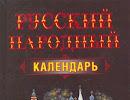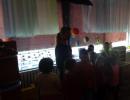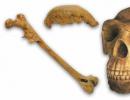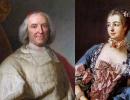Presentation on the topic "Alexander Blok - the poet of the "Silver Age"". Alexander Blok. Poems about the Beautiful Lady. The Silver Age of Russian Poetry The main motives of the Silver Age poet Alexander Blok
Alexander Alexandrovich Blok(16 (28) November 1880, St. Petersburg, Russian empire- August 7, 1921, Petrograd, RSFSR) - Russian poet, classic of Russian literature of the XX century, one of the greatest poets of Russia.
Blok's mother, Alexandra Andreevna, is the daughter of the rector of St. Petersburg University, Andrei Beketov. Shortly after the birth of Alexander, the poet's mother left her husband, Warsaw lawyer Alexander Lvovich Blok (1852-1909), and in 1889 she remarried Guards officer F.F. Kublitsky-Piottuch, while leaving her son the name of her first husband. Nine-year-old Blok settled with his mother and stepfather in the Grenadier barracks, located on the outskirts of St. Petersburg, on the banks of the Bolshaya Nevka. In the same year, Alexander Blok was sent to the Vvedensky gymnasium. In 1897, finding himself with his mother abroad, in the German resort town of Bad Nauheim, Blok experienced his first strong youthful love for Xenia Sadovskaya. She left a deep mark on his work. In 1897, at a funeral in St. Petersburg, he met with Vl. Solovyov.
In 1898 he graduated from the gymnasium, entered the Faculty of Law Petersburg University. Three years later he transferred to the Slavic-Russian Department of the Faculty of History and Philology, from which he graduated in 1906. At the university, Blok met Sergei Gorodetsky and Alexei Remizov.
At this time, the poet's second cousin, later the priest Sergei Mikhailovich Solovyov (junior), became one of the closest friends of the young Blok.
Blok wrote his first poems at the age of five. At the age of 10, Alexander Blok wrote two issues of the Ship magazine. From 1894 to 1897, together with his brothers, he wrote the handwritten journal Vestnik. Since childhood, Alexander Blok spent every summer in the estate of his grandfather Shakhmatovo near Moscow. 8 km away was the estate of Beketov's friend, the great Russian chemist Dmitry Mendeleev Boblovo. At the age of 16, Blok became interested in theater. In St. Petersburg, Alexander Blok signed up for a theater group. However, after the first success of roles in the theater, he was no longer given.
In 1903, Blok married Lyubov Mendeleeva, daughter of D. I. Mendeleev, the heroine of his first book of poems, Poems about the Beautiful Lady. It is known that Alexander Blok had strong feelings for his wife, but periodically kept in touch with various women: at one time it was the actress Natalya Nikolaevna Volokhova, then the opera singer Andreeva-Delmas. Lyubov Dmitrievna also allowed herself hobbies. On this basis, Blok had a conflict with Andrei Bely, described in the play "Balaganchik". Bely, who considered Mendeleev the embodiment of the Beautiful Lady, was passionately in love with her, but she did not reciprocate. However, after the First World War, relations in the Blok family improved, and last years the poet was the faithful husband of Lyubov Dmitrievna.
In 1909, two difficult events take place in the Blok family: the child of Lyubov Dmitrievna dies and the father of Blok dies. In order to recover, Blok and his wife leave for a vacation in Italy. For Italian poetry, Blok was accepted into a society called the Academy. In addition to him, it included Valery Bryusov, Mikhail Kuzmin, Vyacheslav Ivanov, Innokenty Annensky.
In the summer of 1911, Blok again traveled abroad, this time to France. Alexander Alexandrovich gives a negative assessment of French morals.
The inherent quality of the French (and the Bretons, it seems, par excellence) is the impenetrable dirt, first of all, physical, and then spiritual. It is better not to describe the first dirt; in short, a person of any squeamishness will not agree to settle in France.
In the summer of 1913, Blok again went to France (on the advice of doctors).
Biarritz is flooded with the French petty bourgeoisie, so that even my eyes are tired of looking at ugly men and women ... In general, I must say that I am very tired of France and I want to return to cultural country- Russia, where there are fewer fleas, almost no French women, there are food (bread and beef), drink (tea and water); beds (not 15 arshins wide), washstands (there are basins from which you can never pour out all the water, all the dirt remains at the bottom) ...
In 1912 Blok wrote the drama The Rose and the Cross. The play was liked by K. Stanislavsky and V. Nemirovich-Danchenko, but the drama was never staged in the theater.
On July 7, 1916, Blok was called to serve in the engineering unit of the All-Russian Zemsky Union. The poet served in Belarus. By his own admission in a letter to his mother, during the war his main interests were "food and horses."
February and October Revolution Block met with mixed feelings. He refused to emigrate, believing that he should be with Russia in difficult times. In early May 1917, he was hired by the "Extraordinary Commission of Inquiry to investigate the illegal actions of former ministers, chief executives and other senior officials of both civil and military and naval departments" as an editor. In August, Blok began to work on the manuscript, which he considered as part of the future report of the Extraordinary Investigative Commission and which was published in the journal Byloye (No. 15, 1919), and in the form of a book called " Last days Imperial Power” (Petrograd, 1921).
In early 1920, Franz Feliksovich Kublitsky-Piottuch died of pneumonia. Blok took his mother to live with him. But she and Blok's wife did not get along with each other.
In January 1921, on the occasion of the 84th anniversary of Pushkin's death, Blok delivered his famous speech "On the Appointment of a Poet" at the House of Writers.
Blok was one of the few artists of Petrograd who not only accepted Soviet power but agreed to work for her. The authorities began to widely use the name of the poet for their own purposes. During 1918-1920. Blok, often against his will, was appointed and elected to various positions in organizations, committees, and commissions. The ever-increasing volume of work undermined the strength of the poet. Fatigue began to accumulate - Blok described his condition of that period with the words "I was drunk." This, perhaps, also explains the creative silence of the poet - he wrote in a private letter in January 1919: "For almost a year since I did not belong to myself, I have forgotten how to write poetry and think about poetry ...". Heavy workloads in Soviet institutions and living in a hungry and cold revolutionary Petrograd completely undermined the poet's health - Blok developed a serious cardiovascular disease, asthma, mental disorders appeared, and scurvy began in the winter of 1920.
In the spring of 1921, Alexander Blok, together with Fyodor Sologub, asked for exit visas. The issue was considered by the Politburo of the Central Committee of the RCP(b). The exit was denied. Lunacharsky noted: “We literally, without releasing the poet and without giving him the necessary satisfactory conditions, tortured him.” A number of historians believed that V. I. Lenin and V. R. Menzhinsky played a particularly negative role in the fate of the poet, forbidding the patient to travel to a sanatorium in Finland for treatment, which, at the request of Maxim Gorky and Lunacharsky, was discussed at a meeting of the Politburo of the Central Committee RCP(b) July 12, 1921. The permission to leave on July 23, 1921, obtained by L. B. Kamenev and Lunacharsky at the subsequent meeting of the Politburo, was belated and could no longer save the poet.
Finding himself in a difficult financial situation, he was seriously ill and on August 7, 1921, he died in his last Petrograd apartment from inflammation of the heart valves. A few days before his death, a rumor spread around Petersburg that the poet had gone mad. Indeed, on the eve of his death, Blok raved for a long time, obsessed with a single thought: were all copies of The Twelve destroyed. However, the poet died in full consciousness, which refutes the rumors about his insanity. Before his death, after receiving a negative response to a request to travel abroad for treatment (dated July 12), the poet deliberately destroyed his notes, refused to take food and medicine.
The poet was buried at the Smolensk Orthodox cemetery in Petrograd. The families of the Beketovs and Kachalovs are also buried there, including the poet's grandmother Ariadna Alexandrovna, with whom he was in correspondence. The funeral service was held on August 10 (July 28, old style - the day of the celebration of the Smolensk Icon of the Mother of God) in the Church of the Resurrection of Christ. In 1944, Blok's ashes were reburied at Literary bridges at the Volkovskoye cemetery.
slide 2
slide 3
Alexander Blok - the poet of the "Silver Age".
In the history of the formation of true true Russian culture, the "Silver Age" occupies one of the special places. Alexander Blok, in turn, is the brightest representative of this time.
slide 4
Oh, I WANT TO LIVE CRAZY!
ALL THAT IS TO PERMANENT,
IMPERSONAL - TO HUMAN,
THE UNCOMPLETED - REALIZE!
slide 5
BECAUSE WITH MOTHER'S MILK I HAVE ABSORBED THE SPIRIT OF RUSSIAN HUMANISM
The family of the rector of St. Petersburg University A.N. Beketov.
slide 6
First collection of poems
First volume
Cycle "Crossroads";
Cycle "Poems about the Beautiful Lady"
Third volume
"It's all about Russia"
Second volume
Cycle "Bubbles of the Earth";
Cycle "City"
Slide 7
The block reveals the main meaning of the stages of the path he has traveled and the content of each of the books of the trilogy:
“...this is my path, now that it has been passed, I am firmly convinced that this is due and that all the verses together are the “trilogy of incarnation”
(from a moment of too bright light - through the necessary swampy forest - to despair, curses, “retribution * and ... - to the birth of a “public” person, an artist who courageously looks into the face of the world ..)".
Slide 9
"Beautiful lady"
Dawn, star, sun, white color-?
Opening circles -?
Morning, spring -?
Winter, night - ?
Blue, purple world -?
Slide 10
slide 11
The story of earthly, quite real love is transformed into a romantic-symbolic mystical-philosophical myth.
It has its own plot and its own plot.
The basis of the plot is the opposition of the “earthly” ( lyrical hero) “heavenly” (Beautiful Lady) and at the same time the desire for their connection, “meeting”, as a result of which the transformation of the world should come, complete harmony.
However, the lyrical plot complicates and dramatizes the plot. From poem to poem, there is a change in the mood of the hero: bright hopes - and doubts about them, the expectation of love - and the fear of its collapse, faith in the immutability of the image of the Virgin - and the assumption that it can be distorted ("But I'm scared: you will change your appearance" ).
slide 12
“I enter dark temples…”
What is the emotional atmosphere of the poem?
By what means is it created?
What are the subject matter of the poem, its colors?
What is the lyrical hero of the poem?
Is the appearance of the Beautiful Lady traced?
By what means is her image created?
slide 13
Slide 14
slide 15
slide 16
Slide 17
Slide 18
Slide 19
Slide 20
The name proposed by us, SYMBOLISM, is the only one suitable for new school, only it conveys without distortion the creative spirit of contemporary art
Paris. Newspaper "Figaro"
Jean Moreas "Manifesto of Symbolism"
The human perception of the world is imperfect, therefore the depicted reality is erroneous
The secrets of the world can only be comprehended emotionally and intuitively
A reflection of this "higher truth" and at the same time a way to comprehend it is a hint symbol
From the history of symbolism
slide 21
Poetics of hints, shades. The concept of a symbol as an image. Symbol as a polysemantic allegory
Alexander Blok - the poet of the "Silver Age". In the history of the formation of true true Russian culture, the "Silver Age" occupies one of the special places. Alexander Blok, in turn, is the brightest representative of this time.


The first collection of poems The first volume () Cycle "Crossroads"; Cycle "Poems about the Beautiful Lady" Third volume () "It's all about Russia" Second volume () Cycle "Bubbles of the Earth"; Cycle "City"

Blok reveals the main meaning of the stages of the path he has traveled and the content of each of the books of the trilogy: ... this is my path, now that it has been completed, I am firmly convinced that this is due and that all the poems together are a trilogy of incarnation (from a moment of too bright light through the necessary swampy forest to despair, curses, retribution * and ... to the birth of a social person, an artist, courageously looking into the face of the world ..).




The story of earthly, quite real love is transformed into a romantic-symbolic mystical-philosophical myth. It has its own plot and its own plot. The basis of the plot is the opposition of the earthly (lyrical hero) to the heavenly (Beautiful Lady) and at the same time the desire for their connection, meeting, as a result of which the transformation of the world should come, complete harmony. However, the lyrical plot complicates and dramatizes the plot. From poem to poem, the mood of the hero changes: bright hopes and doubts about them, expectation of love and fear of its collapse, faith in the immutability of the image of the Virgin and the assumption that it can be distorted (But it’s scary to me: you will change your appearance).

“I enter dark temples…” What is the emotional atmosphere of the poem? By what means is it created? What are the subject matter of the poem, its colors? What is the lyrical hero of the poem? Is the appearance of the Beautiful Lady traced? By what means is her image created?








The name we have proposed - SYMBOLISM - is the only suitable name for the new school, only it conveys without distortion the creative spirit of modern art September 18, 1886 Paris. Le Figaro Newspaper Jean Moreas "Manifesto of Symbolism" Jean Moreas "Manifesto of Symbolism" Human perception of the world is imperfect, therefore the depicted reality is erroneous Human perception of the world is imperfect, therefore the depicted reality is erroneous The secrets of the world can only be comprehended emotionally and intuitively The secrets of the world can be comprehended only emotionally and intuitively Reflection of this “higher truth” and at the same time the way to comprehend it is a hint symbolThe reflection of this “higher truth” and at the same time the way to comprehend it is a hint symbol From the history of symbolism


Autumn motif 1899 Elegies in painting What kind of painting do you imagine with this title? What is the difference between content and title? What is the significance of the autumn motif in the work? there is no historical concreteness (“it’s just a beautiful era”) the color is built on the consonance of large color spots soft muted color oval motif musicality of lines

Description of the presentation on individual slides:
1 slide
Description of the slide:
2 slide
Description of the slide:
How does Russia appear in the lyrics of A.A. Blok? Blok called his work the process of "incarnation". Three stages of this process were reflected in the poet's poems, in his poetic trilogy. The first was the worship of the ideal - the "Beautiful Lady". The second is life disappointment. Russia appears in Blok's lyrics from a completely new, unexpected side. The experiences of the lyrical hero are very personal, intimate. Russia is life itself, it is inseparable from the heart of the poet: “My Russia, my life, shall we toil together?” This is a rhetorical question, the answer is clear: together. The theme of Russia is central in the work of A.A. Blok. The different guises in which she appears in the poet's lyrics reflect her inconsistency, her dramatic history, her unchanging appeal.
3 slide
Description of the slide:
The homeland was initially perceived by Blok in a somewhat mystical way: I slumber - and behind the slumber is a mystery, And Russia secretly honors, She is extraordinary even in dreams, I won’t touch her clothes ... But already in 1908 he wrote the poem “Russia” without the slightest touch of mysticism : ... Russia, impoverished Russia, Your gray huts are for me, Your wind songs are for me - Like the first tears of love! ..
4 slide
Description of the slide:
Beautiful Lady in the lyrics of A.A. Blok. I anticipate you. Years pass by All in the guise of one I foresee You. The fate of Alexander Blok is full of extremes, sometimes even unexpected ones. It has a thirst for life and despondency, a frantic search for truth and disappointment, love and suffering. From the age of 18, Blok seriously prepares himself as an actor. He performs tragic roles: Romeo, Hamlet, Chatsky, the Miserly Knight .. This tragedy was attractive to Blok. In this society, he meets Lyubov Dmitrievna Mendeleeva and becomes interested in her. The theatrical stage, built in the village barn, is extended into life, relations with Mendeleeva become a continuation of the theatrical action. The image of the Unearthly friend, the Queen, which arose earlier in Blok's work, under the influence of the impression made on the poet by Lyubov Dmitrievna, takes shape and is artistically fixed in these years as the image of the Beautiful Lady. There was a discovery of a new big theme, which not only determined in many respects the nature of Blok's further poetic work. The Beautiful Lady is not only a symbol of ideal unity and harmony, she owns the secret of life balance, hidden from those living on Earth.
5 slide
Description of the slide:
Love is a rite of service to something higher... Love is drawn by Blok as a rite of service to something higher; the girl, to whom his love experiences are addressed, is transformed into a “Beautiful Lady”, embodying the “living soul of the world”: I enter dark temples, I perform a poor rite. There I wait for the Beautiful Lady In the flickering of red lamps. A love experience is encrypted as a kind of mystical act: I, a boy, light candles, ... Submissive to a gentle look, Fire is a censer on the shore. Admiring the secret beauty She is without thoughts and without speech And behind the church fence On that shore laughs... I throw white flowers...
6 slide
Description of the slide:
The image of the Beautiful Lady was created on the basis of real earthly impressions. It was a path, relatively speaking, from the “earthly” to the “unearthly”. It was this fact that played a decisive role in Blok's creative evolution, because it made it possible to get out of mysticism and abstraction. After all, the primary cause of all further reincarnations turned out to be precisely the sphere real life, genuine relationships and feelings. The image of the Beautiful Lady goes through a complex path of modifications: the earthly appearance of L.D. Mendeleeva evokes associations with the heroine of youthful poems, whose image, in turn, grows into the image of the Beautiful Lady, but in combination with the idea of a living person. Closed inside his own self, the lyrical hero of Blok longs for liberation, light, freedom, spring, and this thirst mates with the appearance of his “beloved”, “queen”, who is destined to open the way for him “from darkness to light”: ... Oh, believe! I will give my life to you, When you open the doors to a new temple to the impassive poet, You show the way from darkness to light! ..
7 slide
Description of the slide:
The poems about the Beautiful Lady clearly revealed the tragic impossibility of living harmony. Blok has motives of “blasphemous” doubts not only about his own vocation, but also about his beloved, who is able to “change her appearance”: ... How clear is the horizon! And radiance is near. But I'm afraid: you will change your appearance.
Read on your own and try to analyze, according to the scheme given in the previous chapters, the poems of Alexander Blok"Factory" and "Fed". When analyzing, answer the following questions:
What feelings did these verses evoke in you?
How does the poet express the tragedy of what is happening?
What words convey the depth of social contradictions?
What is the role of sound and color in creating an atmosphere of injustice reigning in these works.
What caused the gloomy coloring of these poems: indignation against social injustice, autocracy (as the critics of the 20th century believed), a gloomy foreboding of "chaos" or something else.
Read and determine the nature of the poems "Stranger", "Oh, spring ...". Compare them with the works you have analyzed.
Cycle of poems "On the field of Kulikovo". Poems about the past, present and future of Russia.
Blok's poetic mastery grows from book to book. “I consciously and irrevocably dedicate my whole life to this topic. I realize more and more clearly that this is the first question, the most vital, the most real. After all, here is life or death, happiness or death,” Blok wrote in 1908. In Blok's verses one can meet picturesque paintings Russian nature and great images of the past, deep reflections, exciting stories about human destinies, romances and songs, angry satire, high citizenship. Read carefully the poems of Alexander Blok"The Nineteenth Century...", "Autumn Will", "The River Spread".
Think about them for yourself:
What is the mood tone of "Autumn Will"?
How does the poet speak about the Motherland?
How are Blok's poems similar to Lermontov's poems ("I go out alone on the road")? (Tone, thirst for active action, communion with the native land, regret for wasted time and energy).
Read aloud the poems "Rus", "Russia", "On the Kulikovo field". Pay attention to the fact that the Block first draws an imageMotherland - "mysterious", with "traditions of antiquity", and then in his poems there is a "living, powerful and youngRussia", full of life, wide, versatile. The poet is attracted by the endless Russian expanses and roads, full-flowing rivers and flaming mountain ash, bonfires in distant meadows, eternal knocking on gates, rural churches, gray huts, impoverished villages, loose ruts, milestones. He feels the coming changes and predicts “high and rebellious days” for his homeland, he believes in her strength. Compare with the final work of Blok - the poem "Scythians". So what does the poet see as the strength and power of his country?
The main means of artistic expression in Blok's poetry is sound writing, he sensitively listens to the sounds of future changes. Pay attention to the fact that a number of metaphors and images run through all the verses, embodying the unrestrained whirlwind movement: wind, snow blizzard, blizzard...
I advise you to memorize the analyzed poems by heart: this will help you better understand them, understand their artistic value, and bring up a real reader in yourself, because being a good reader is also a talent.






